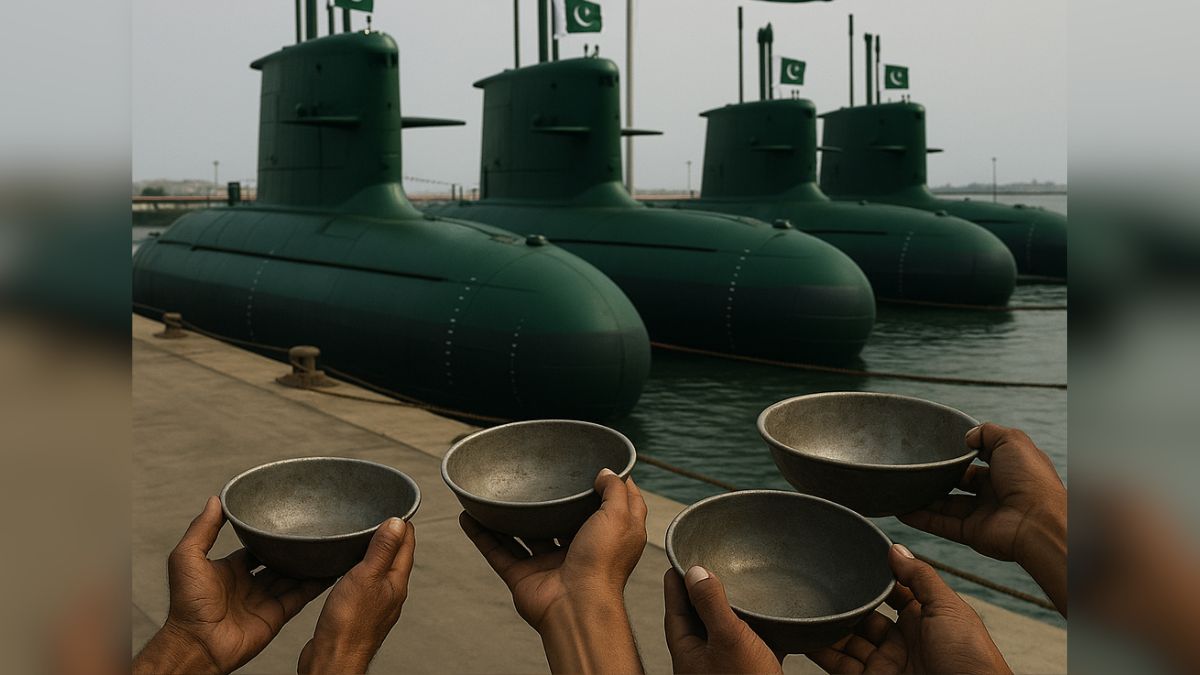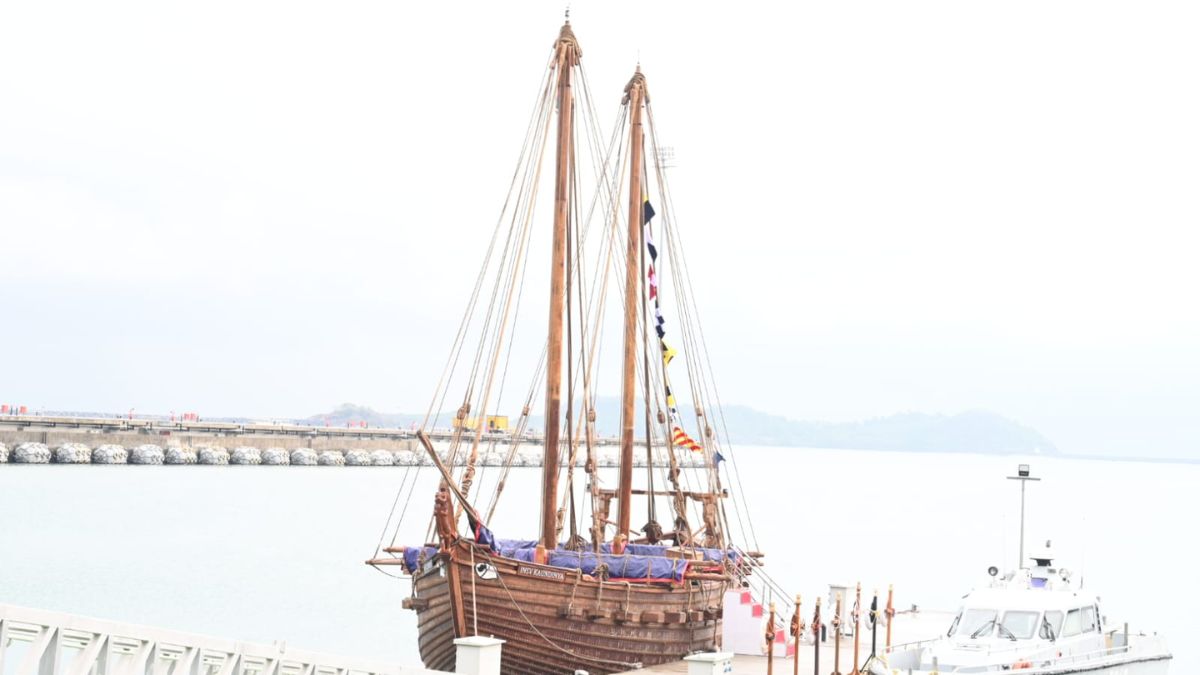Guns Over Bread: Pakistan’s Submarines Rise As Social Welfare Sinks

While Pakistan is splurging on building a naval fleet, its own population suffers as welfare programs falter. Image courtesy: AI-generated image via DALL-E
When asked to picture a family in rural Pakistan, the scene is often one of deprivation: parents working long hours yet unable to afford regular meals, children kept out of classrooms, days without electricity, and little hope of reliable healthcare.
Contrast that with the image of a dockyard in Karachi or a ceremony in Islamabad, where officials cut ribbons and deliver speeches to celebrate the launch of a new Hangor-class submarine acquired from China. The symbolism is striking. At one end, families struggle for subsistence. At the other, billions of dollars are funnelled into military hardware.
What happened to BISP?
The Benazir Income Support Programme (BISP) was designed as a cash transfer scheme to provide a lifeline for the poorest. But recent audits reveal a system riddled with irregularities. The Public Accounts Committee found that senior officials, pensioners and their relatives had illegally drawn funds, even though they were explicitly ineligible. Recovery mechanisms do not exist, leaving the intended beneficiaries waiting for money that never arrives.
For millions, these transfers are the difference between surviving inflation and food insecurity or going without. Yet, while loopholes and corruption delay disbursements, Pakistan’s leaders commit fresh billions to weapons procurement.
Submarines or social security?
The comparison is jarring. Islamabad’s ongoing deal for eight Chinese-made Hangor-class submarines is estimated at $4–5 billion. The entire BISP budget for 2024–25, by contrast, stands at just over $2 billion. One submarine purchase could fund more than two years of BISP allocations or double its reach to 18 million families for a year.
The defence budget tells the same story. For 2024–25, Pakistan earmarked PKR 2.12 trillion ($7.6 billion) for the military — a 16% rise from last year. Social spending, meanwhile, has been held flat under IMF austerity demands. Beyond submarines, the country is ploughing resources into JF-17 fighter production and nuclear delivery modernisation. Pakistan now maintains the fifth-largest nuclear arsenal in the world, even as the World Food Programme estimates 36% of households face food insecurity.
Where is the real frontline?
Welfare economists argue that stability begins at home: regular cash transfers and food security are deterrents against unrest, extremism and political volatility. A population confident of its next meal is less likely to be radicalised or driven into the streets.
Seen in this light, economic stability and welfare are as much instruments of national defence as any fighter jet or submarine. Pakistan’s leaders continue to buy weapons in the name of security, but the greater threat to long-term peace may come not from across the border, but from empty kitchens within.







